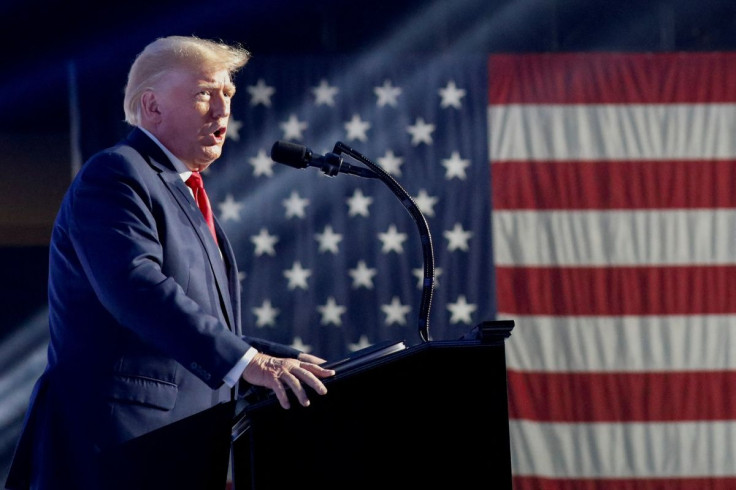Trump Deleted References To Prosecuting Jan. 6 Rioters In Remarks -testimony

President Donald Trump crossed out sentences that distanced him from the rioters who attacked the U.S. Capitol on Jan. 6, 2021, and refused to call for their prosecution in a draft of a speech he delivered the next day, congressional testimony showed on Monday.
The former Republican president deleted lines that said, "I want to be very clear: You do not represent me. You do not represent our movement," according to an image of the script posted on Twitter by a member of the Jan. 6 committee investigating the attack, U.S. Representative Elaine Luria.
He also deleted a reference to directing the "Department of Justice to ensure all lawbreakers are prosecuted to the full extent of the law. We must send a clear message -- not with mercy but with JUSTICE. Legal consequences must be swift and firm."
In a primetime hearing last week, the congressional committee probing the attack played video outtakes from the Jan. 7 speech that showed Trump refusing to admit the election was over and he had lost. "I don't want to say the election is over," Trump said in footage recorded as he rehearsed the speech.
In the attack, thousands of Trump supporters breached the Capitol in an attempt to stop Congress from certifying Democrat Joe Biden's November 2020 presidential victory.
Video clips that Luria posted, not previously made public, included testimony from the former president's daughter and son-in-law, Ivanka Trump and Jared Kushner, and White House lawyers and aides who described Trump as reluctant to give a reconciliatory address after the Capitol attack.
"Do you know why he wanted that crossed out?" an investigator asked Kushner.
"I don't know," Jared Kushner responded.
The witnesses described concerns about what would happen if the president did not send a stronger message.
"That needed to be stated forcefully: They did not represent him or his political views in any form or fashion," White House counsel Pat Cipollone testified.
Trump aide John McEntee told committee investigators that Kushner asked him to nudge the speech along and encourage Trump to "help everything cool down."
"Was the implication that the president was in some ways reluctant to give that speech?" an investigator asked McEntee.
"Yeah."
"OK, what do you base that on?"
"The fact that somebody has to tell me to nudge it along," McEntee said.
© Copyright Thomson Reuters 2024. All rights reserved.





















